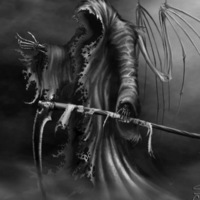
3. Автордың «Кешегі сұрапыл соғыс» деп отырғаны қандай соғыс? Тарих пәнінен білетінімізді еске
түсіріп, мына сұрақтарға жауап беріп көрелік: а) Ұлы Отан соғысы ұғымын қалай түсінесіңдер? Осылай атау дұрыс па? ә) Бұл соғыс қай жылы, қай елдердің арасында болды? 6) Соғыстың себептері, яғни алғышарттары не болған еді? в) Екінші дүниежүзілік соғыс батырларынан кімдерді білеміз? 0
0
 0
0
Ответы на вопрос
 Внимание! Ответы на вопросы дают живые люди. Они могут содержать ошибочную информацию, заблуждения, а также ответы могут быть сгенерированы нейросетями. Будьте внимательны. Если вы уверены, что ответ неверный, нажмите кнопку "Пожаловаться" под ответом.
Внимание! Ответы на вопросы дают живые люди. Они могут содержать ошибочную информацию, заблуждения, а также ответы могут быть сгенерированы нейросетями. Будьте внимательны. Если вы уверены, что ответ неверный, нажмите кнопку "Пожаловаться" под ответом.

б) Соғыс 1941 жылы басталып, 1945 жылы аяқталды, Кеңес Одағы мен оның одақтастары жеңіске жетті.
в) Екінші дүниежүзілік соғыстың қаһармандары қатарында өз Отанын, азаматтарын қорғаған кеңес жауынгерлері, сондай-ақ Кеңес Одағымен бірге соғысқан одақтас халықтар да бар. Олардың қатарында Иосиф Сталин сияқты көшбасшылар, сондай-ақ отбасы мен елін қорғау үшін жанын қиған жекелеген әскери қызметкерлер бар.
 0
0
 0
0

The "Keshegi surapyly sogys" and its significance
The "Keshegi surapyly sogys" is a historical event that is often referred to as the "Great Patriotic War" in Kazakhstan. It is a term used to describe the Soviet Union's participation in World War II. The war lasted from 1941 to 1945 and had a significant impact on the Soviet Union and its people. The term "Keshegi surapyly sogys" emphasizes the heroic struggle and sacrifice of the Soviet people during the war.Understanding the meaning of "Uly Otan sogysy"
The phrase "Uly Otan sogysy" translates to "Great Patriotic War" in English. It is a term commonly used in Kazakhstan to refer to the Soviet Union's involvement in World War II. The term highlights the importance of the war as a patriotic struggle for the Soviet people against the Nazi invasion. The "Uly Otan sogysy" is a significant event in the history of Kazakhstan and is remembered for the bravery and resilience of the Soviet people.The timeframe and countries involved in the war
The "Keshegi surapyly sogys" or "Uly Otan sogysy" took place from 1941 to 1945. It primarily involved the Soviet Union and Nazi Germany, but it also had a global impact as it was part of World War II. The war affected many countries and regions, including Europe, Asia, Africa, and the Pacific. It was a conflict between the Allied Powers (including the Soviet Union, the United States, and the United Kingdom) and the Axis Powers (including Germany, Italy, and Japan).The causes and factors contributing to the war
The causes of the "Keshegi surapyly sogys" or "Uly Otan sogysy" were complex and multifaceted. Some of the key factors that contributed to the outbreak of the war include:1. German aggression and expansionism: Nazi Germany, under the leadership of Adolf Hitler, pursued an aggressive foreign policy and sought to expand its territory and influence [[1]]. 2. Soviet Union's territorial concerns: The Soviet Union had territorial concerns and sought to protect its borders and security interests [[2]]. 3. Political ideologies: The clash between the ideologies of fascism and communism played a significant role in the war. Nazi Germany represented fascism, while the Soviet Union represented communism [[3]]. 4. Failure of diplomacy and appeasement: Diplomatic efforts to prevent the war, such as the Munich Agreement, failed to deter German aggression [[4]]. 5. Economic factors: Economic instability, including the Great Depression, contributed to the rise of extremist ideologies and tensions between nations [[5]].
Notable participants in the Second World War
The Second World War involved numerous countries and leaders. Some of the notable participants include:1. Adolf Hitler: The leader of Nazi Germany, who played a central role in initiating the war and implementing aggressive expansionist policies. 2. Joseph Stalin: The leader of the Soviet Union, who led the country during the war and played a crucial role in the Allied victory. 3. Winston Churchill: The Prime Minister of the United Kingdom, who provided strong leadership and played a key role in the Allied war effort. 4. Franklin D. Roosevelt: The President of the United States, who led the country through most of the war and worked closely with the Allies to defeat the Axis Powers. 5. Benito Mussolini: The leader of Italy, who formed an alliance with Nazi Germany and played a significant role in the war.
These are just a few examples of the many individuals and countries involved in the Second World War.
Note: The information provided above is based on search results and historical knowledge.
 0
0
 0
0
Похожие вопросы
Топ вопросов за вчера в категории Қазақ тiлi
Последние заданные вопросы в категории Қазақ тiлi
-
Математика
-
Литература
-
Алгебра
-
Русский язык
-
Геометрия
-
Английский язык
-
Химия
-
Физика
-
Биология
-
Другие предметы
-
История
-
Обществознание
-
Окружающий мир
-
География
-
Українська мова
-
Информатика
-
Українська література
-
Қазақ тiлi
-
Экономика
-
Музыка
-
Право
-
Беларуская мова
-
Французский язык
-
Немецкий язык
-
МХК
-
ОБЖ
-
Психология
-
Физкультура и спорт
-
Астрономия
-
Кыргыз тили
-
Оʻzbek tili




























